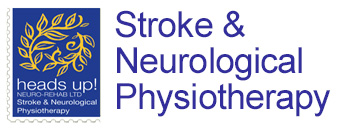Multiple Sclerosis
How Multiple Sclerosis can affect your life
Multiple sclerosis (MS) is an inflammatory disease of the central nervous system affecting the insulating part of the nerves and disrupting the transmission of signals to the muscles. As muscles work through signals being carried down the nerves, this affects movement.
Multiple sclerosis can cause pain, muscle spasms, changes in posture and coordination, reduced strength and balance and muscle stiffness. The course of the disease is impossible to predict, so neurological physiotherapists work with each individual to address their particular issues and ameliorate their symptoms.
Supporting you with Multiple Sclerosis
Your posture, core strength and stability, limb strength and sensation, gait and functional abilities will all be assessed. We will also assess your physical difficulties, help improve movement and strength and maximise independence. Through this thorough assessment, we will create personalised stretching and exercise routines, along with advice on fatigue and lifestyle management.
Specialist neurological physiotherapy can be helpful, whatever your level of ability, and can have a positive effect on your quality of life. We treat every person as an individual and tailored treatment can benefit you at whatever stage you are at.
What to expect from heads up
First assessment
- We will take time to listen to how MS is impacting your life, what difficulties you are experiencing and discuss what is important to you to focus on.
- We will assess how MS is affecting you physically, cognitively and emotionally and support you to formulate short- and long-term goals to work on.
- We will take time to explain what we are doing and to answer any questions you may have about your situation.
- We will provide some initial advice, treatment and guidance with exercises to carry out at home.
- We will discuss what your treatment plan may look like and offer treatment sessions that will suit your needs.
Treatment plan
Assessment is ongoing throughout the treatment process as your presentation changes.
Treatment may consist of stretches; building muscle strength and co-ordination; carrying out functional tasks; improving balance control and re-educating your walking pattern. It is led by your needs and wants but the therapist will evaluate the best treatment methods to achieve your goals. Your home exercise programme will be updated and reviewed regularly.
After discussion, we may liaise with your GP or consultant about your medication and medical management. We may signpost you to organisations that can support you and/or refer you to other health professionals.
There will be regular opportunity to discuss your changing needs.
